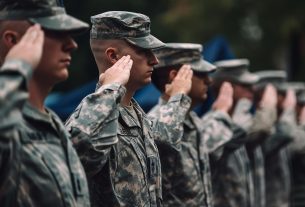U.S. Facilitates Peace Talks Between DR Congo and Rwanda
In Doha, U.S. senior Africa adviser Massad Boulos facilitated discussions between representatives from the Democratic Republic of Congo (DRC) and Rwanda. The talks aim to negotiate an end to the ongoing conflict in eastern DRC, where M23 rebels, allegedly supported by Rwanda, have made significant territorial gains. A joint declaration, witnessed by U.S. Secretary of State Marco Rubio, commits both nations to draft a peace agreement by May 2. Additionally, the agreement anticipates substantial investments in hydropower and minerals, sectors where China has been notably active. However, despite these diplomatic efforts, renewed clashes have erupted along several fronts in eastern DRC.
UN Delivers First Aid to Khartoum Amid Ongoing Conflict
The United Nations has initiated its first food aid distribution in central Khartoum since the onset of Sudan’s conflict two years ago. Approximately 70 metric tonnes of World Food Programme supplies are being distributed to nearly 8,000 people in the Burri neighborhood, with additional aid targeting 20,000 individuals in the Alazhari area, identified as high-risk for famine. Concurrently, humanitarian efforts are intensifying in the western Darfur region, where over 300,000 people have sought refuge following recent attacks.
Sudan Appoints New Acting Prime Minister Amid Ongoing Conflict
Sudan’s army chief, General Abdel Fattah al-Burhan, has appointed Ambassador Dafallah al-Haj Ali as the country’s new acting prime minister. Ali, a veteran diplomat who previously served as Sudan’s representative to the United Nations, replaces Osman Hussein, who was installed as a largely symbolic prime minister following the 2021 military coup that ousted civilian leader Abdalla Hamdok. The appointment comes amid ongoing conflict between the Sudanese army and the Rapid Support Forces (RSF), which has resulted in tens of thousands of deaths and displaced millions.
UN Extends South Sudan Mission Mandate Amid Political Tensions
The United Nations Security Council has extended the mandate of the UN Mission in South Sudan (UNMISS) for nine days, until May 9, to allow for continued peacekeeping operations amidst escalating political tensions. The extension provides the council additional time to deliberate on the country’s worsening political and security conditions. South Sudan has experienced renewed instability as friction grows between President Salva Kiir and First Vice President Riek Machar, who has been under house arrest since March 26. The two leaders, longtime rivals, signed a 2018 peace deal that formed a transitional government, but the agreement has been repeatedly undermined by violence and disputes.
South Sudan President Replaces Intelligence Chief and Security Advisor
President Salva Kiir of South Sudan has dismissed Lieutenant General Simon Yien Makuac, the head of the country’s General Intelligence Bureau (GIB), and replaced him with General Thoi Chany Reat, his advisor on national security affairs. The reshuffle is part of a series of high-level changes in the country’s security apparatus, which have included frequent alterations to intelligence leadership since October. The GIB plays a crucial role in gathering and analyzing intelligence on external security threats, and its director general holds one of the most senior roles in the country’s security hierarchy.
Mali Junta Repeals Political Party Rules, Sparks Opposition Outcry
Mali’s military junta has announced the repeal of rules governing political parties, a move opposition groups argue is part of a broader campaign to dissolve them. The announcement follows a national conference organized by the junta, which recommended the dissolution of existing parties and proposed that military leader General Assimi Goita become head of state without an election. A draft law to cancel the 2005 charter, which sets out the rules for creating, financing, and running political parties, was adopted at a military cabinet meeting. The repeal has raised concerns among opposition parties about the junta’s intentions to suppress political dissent.
UN Urges Mali to Investigate Alleged Executions by Army and Russian Mercenaries
United Nations experts have called on Malian authorities to investigate reports of alleged summary executions and forced disappearances committed by the Malian army and Russian mercenaries from the Wagner Group. The call follows the discovery of dozens of bodies near the Kwala military camp in the Koulikoro region between April 21 and 22, presumed to be those of about 60 men, primarily ethnic Fulani, who were reportedly arrested, tortured, and executed after being interrogated for alleged terrorist affiliations. The UN warns that if confirmed, these acts could constitute war crimes and crimes against humanity. There has been no official response from Mali’s military or government.
Kenyan Opposition MP Shot Dead in Targeted Attack
Kenyan opposition legislator Charles Were was shot dead in Nairobi in what police have described as a “targeted and premeditated” crime. Were was in the company of his driver and bodyguard when a motorcycle taxi approached their car, and a passenger disembarked and opened fire on the MP. President William Ruto has urged police to conduct a “thorough investigation” and stated that those responsible “must be held to account.” Opposition leader Raila Odinga described Were as a “gallant son of the soil.”
Uganda Faces Criticism Over Use of Military Courts for Civilian Trials
Ugandan opposition politicians have accused President Yoweri Museveni of attempting to quash dissent by prosecuting opponents on politically motivated charges in military courts ahead of the 2026 elections. Despite a January 2025 Supreme Court ruling declaring the practice unconstitutional, Museveni has vowed to continue prosecuting civilians in military tribunals. The government is now pushing to introduce a law to allow military tribunals to try civilians under “exceptional circumstances.” Key opposition figures, including Kizza Bes



